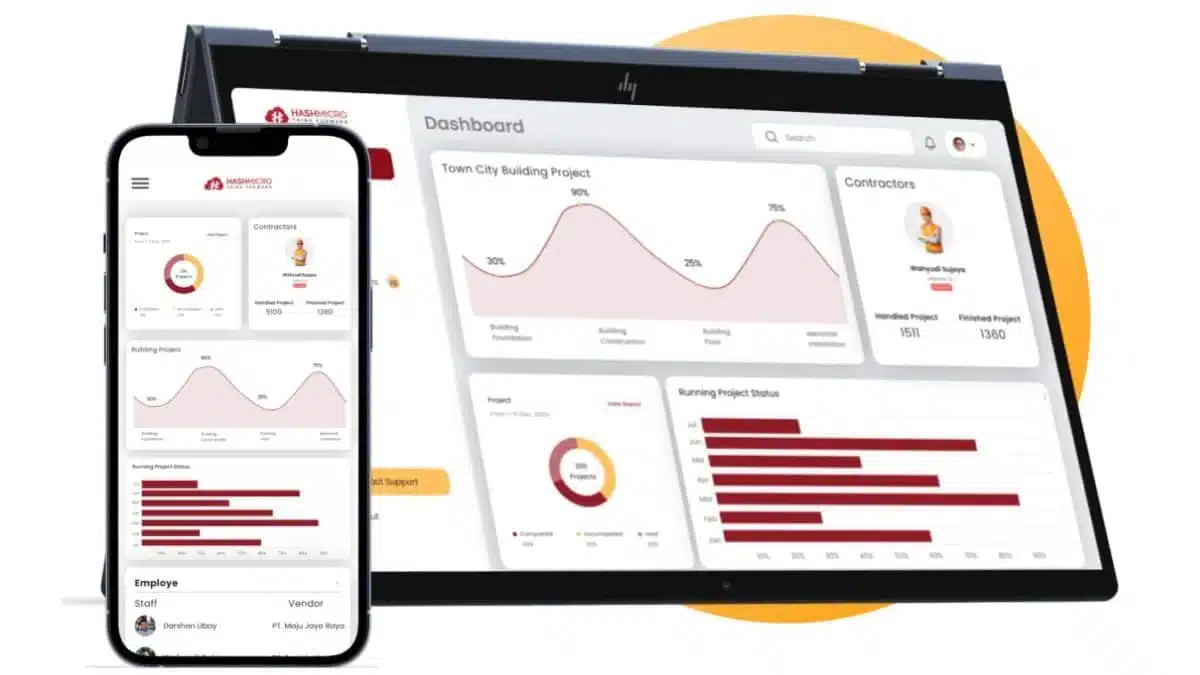I often see projects fail because leaders underestimate the complex scope of construction development. Without a strategic approach, navigating land acquisition, design, and financial planning becomes an overwhelming challenge.
This lack of cohesion leads to cost overruns, but modern construction software offers a powerful solution. It integrates every stage of the lifecycle to ensure projects remain profitable and efficient.
In this guide, I will break down the essential steps to mastering this process for your business. Matuto nang higit pa tungkol sa pagbuo ng konstruksiyon sa ibaba!
Key Takeaways
|
Table of Contents
What Is Construction Development?
Construction development is a holistic business process that covers the entire lifecycle of a property, from concept to asset management. It goes beyond building to include land acquisition, financing, and strategic market analysis.
The timeline for this process varies significantly based on the project’s scale and complexity. Small residential builds may take a year, while significant commercial developments can span over a decade.
The Differences between Construction and Development
While often confused, these two terms represent distinct phases with unique goals within the property industry. Understanding these nuances is vital for effective resource allocation and strategic planning.
| Aspect | Construction | Development |
|---|---|---|
| Focus & Scope | Technical execution and physical building on-site. | Business, legal, financial, and marketing strategy. |
| Primary Objective | Complete build on time and within budget. | Maximize ROI and commercial value. |
| Time Horizon | Defined duration (Groundbreaking to Handover). | Long-term (Concept to Asset Management). |
| Risk Involvement | Operational, safety, and technical risks. | Market, financial, and regulatory risks. |
Key Stages in the Construction Development Process

- Initiation and Pre-Planning Stage
We begin by conducting market research and feasibility studies to test the project’s viability. This stage involves financial analysis to project costs and potential returns before acquiring land. - Pre-Construction and Design Stage
The team collaborates with architects to finalize detailed designs and secure necessary permits. We also prepare the Bill of Quantities and select contractors during this technical preparation phase. - Construction and Execution Stage
Physical execution begins as contractors mobilize on-site for foundation work and structural erection. Project managers monitor daily progress and safety compliance to ensure the build stays on schedule. - Post-Construction and Handover Stage
Once building work ends, we conduct final inspections and system testing to ensure everything functions correctly. This phase concludes with the official handover and the issuance of the Certificate of Occupancy. - Operational and Asset Management Stage
The final stage shifts focus to long-term asset management and routine facility maintenance. We aim to keep occupancy high and operational costs low to maximize the property’s value over time.
The Role of Technology in Optimizing Construction Development
Modern technology is essential for managing the increasing complexity and demand for speed in today’s projects. Here is how digital tools are revolutionizing the way we execute developments.
- Centralized Data and Team Collaboration
Cloud-based platforms provide a single source of truth for drawings and documents, preventing data silos. For example, teams use these tools to share real-time updates between the office and the construction site management. - Real-Time Budget and Cost Management
Advanced software tracks actual expenditures against the budget in real-time to detect early deviations. This technology uses S-Curve visualizations to compare financial spending with physical progress automatically. - Enhanced Procurement Efficiency
Digital systems streamline the purchasing cycle by automating quotation and purchase order requests. This ensures materials such as concrete and steel arrive on time, avoiding costly project delays. - Accurate Project Progress Monitoring
Drones and mobile apps allow managers to monitor site activities objectively without being physically present. These tools capture visual data to track Key Performance Indicators directly from a centralized dashboard.
Read more: 16 Best Construction Accounting Software Providers for 2025
Common Challenges in Construction Development
Every project faces hurdles that can threaten profitability if not managed with a proactive strategy. Below are common obstacles developers face and how to effectively overcome them.
- Financial Risks and Budget Overruns
Unexpected costs often arise from inaccurate planning or material price spikes during the build. We mitigate this by using detailed digital cost tracking and maintaining a substantial contingency fund. - Project Schedule Delay Risks
Projects frequently fall behind due to permitting issues or poor coordination among subcontractors. Using Critical Path Method scheduling and real-time progress tracking helps identify and fix bottlenecks early. - Regulatory and Legal Compliance Risks
Navigating complex zoning laws and safety standards presents a significant legal risk to the project. We involve legal consultants early and use compliance management software to ensure all permits are valid. - Operational and On-Site Safety Risks
Construction sites are hazardous environments where accidents can cause severe delays and financial loss. Implementing strict HSE standards and regular safety training is the best way to prevent onsite incidents.
Optimize Your Construction Development with HashMicro

- Budget S-Curve Management: This feature maps planned versus actual costs visually to track spending patterns over time.
- In-Depth Job Estimates (BoQ): The system organizes cost budgets and contract details within a centralized digital database.
- Integrated with Asset Management: It records fuel consumption and equipment usage hours directly through connected monitoring tools.
- Automated Project Invoices: The software generates billing documents automatically based on specific work progress milestones.
- Real-Time Project Dashboard: This tool aggregates live field data to display the current project status on a single screen.
Experience how our system can transform your project management efficiency today. Click here to try the free demo now.

Conclusion
Construction development is a multifaceted discipline that requires balancing strategic vision with technical execution. Success depends on rigorous planning and the ability to adapt to challenges throughout the lifecycle.
Implementing HashMicro Construction Software provides the digital backbone needed to manage this complexity. It centralizes data to help you make informed decisions that drive project profitability.
Take the first step towards smarter project management by exploring our comprehensive solution today. Sign up for a free demo now. I-optimize ang iyong negosyo sa pagtatayo sa amin!

FAQ About Construction Development
-
What is the main role of a construction developer?
A developer’s primary role is as the project’s strategic initiator and manager. They identify market opportunities, secure financing, acquire land, coordinate design and construction teams, and manage the project from concept to a profit-generating asset.
-
What are the most crucial KPIs in construction development?
Crucial KPIs include Return on Investment (ROI) to measure profitability, Cost Variance (budget vs. actual cost), Schedule Variance (plan vs. actual progress), accident rates for safety, and sales or occupancy rates for commercial success.
-
Can small businesses benefit from construction management software?
Absolutely. Modern construction management software is increasingly affordable and scalable. For small businesses, it helps standardize processes, enhance professionalism, control budgets tightly, and provide visibility that is often hard to achieve manually, enabling them to compete more effectively.






































